One of the more spirited debates of our time revolves around the value of a liberal arts education. Many assume the college experience should be directed toward a single, vocational purpose. However, time and tradition have taught us that an education serves each person differently and in different ways over a lifetime. Out of this recognition grew Berea’s distinct approach to the liberal arts.
We asked six members of the Berea Community to share their views on the value of the liberal arts and the importance of this type of education for the Appalachian region and beyond.
Chad Berry
Academic Vice President and Dean of the Faculty, Goode Professor of Appalachian Studies
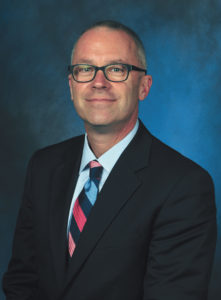
I think the liberal arts are a foundation upon which to build a life. We are living in an increasingly specialized world—we have been for many decades. I think what we lose in that quest for specialization is the wisdom, the knowledge, and the skills that come from a more generalized set of knowledge. We certainly need specialization, but the best educational foundation to me is a broad one, a strong one, and a sturdy one upon which to build one’s educational career. And for me, the liberal arts remain that foundation.
We certainly share that philosophical sense of and commitment to being broadly educated with other liberal arts institutions, but at Berea, while we are predominantly a liberal arts institution, we also have some important programs on this campus because of our history, our founding, and our mission. And so, we have English and philosophy, but we also have agriculture and natural resources, business, nursing, education studies, technology and applied design. I think it’s a really great thing when you say “the liberal arts don’t necessarily make the nurse; the liberal arts make the nurse better.” At Berea, a predominantly liberal arts institution, we make pretty good nurses because they’ve had a liberal arts foundation upon which to build a lifetime of caring and professional work. Nursing doesn’t just require practitioners; it requires practitioners who are skilled in critical thinking, evaluative processes, evidence-based practice, communication, and discernment, and all those skills come out of a liberal arts approach.
The challenges in Appalachia don’t come at us bounded by academic discipline, just as challenges anywhere in the world are complex and nuanced and interconnected. In Appalachian Studies, we strive to understand politics and economics, to be sure, but also culture, spirituality, the arts, and the traditions of the region. The region’s challenges and its assets come at us and transcend any
particular academic discipline. In order to think about how we might best understand the most misunderstood region in America, I think we need a broad-based approach, the kind of approach that the liberal arts provide. We can’t just look at the complexity of a region of 25 million people and expect to make a difference based on just one academic discipline. I think it’s really more of a matter of breadth and depth, and it’s that breadth that a liberally educated person provides. I don’t want to just emphasize the challenges, but when I think about both the assets and the challenges, one draws on so many different academic disciplines in an area studies approach. Sociology is important, but it’s not the only discipline at the heart of the matter. Economics is important, but it’s not the only discipline at the heart of the matter. There’s folklore, anthropology, religious studies, education studies, political science, psychology, and certainly lots of chemistry, biology, and physics. And there’s great creativity in the arts and letters. One really needs to have a deep understanding of all those things when one applies it to a place like Appalachia.
Virgil Burnside, ‘76
Vice President for Labor and Student Life
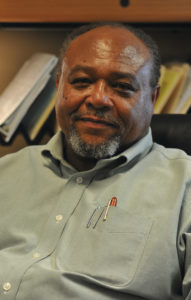
One of the things you see today is that there is more emphasis on the math, science, engineering type background. Liberal arts are not appreciated, but I think if you look at organizations, particularly non-profits, but also in the government as well as traditional businesses, people look for folks who are really articulate, who know how to work in teams, who can see things from different perspectives. I think that’s a big piece of what the liberal arts gives. From a global perspective, I think we have to understand the cultures of others, how to integrate those pieces into the work that we’re trying to achieve. I think the liberal arts gives you the kind of background needed to make this happen. Sometimes, however, I wonder if the liberal arts is unpacked well enough for students to see this, for them to understand these things matter very much.
Broad knowledge, the idea of teamwork, ethical judgment, and written and oral communication skills—I think those are elements that Berea graduates share with other liberal arts graduates. Critical thinking is another skill that I think you see in a lot of liberal arts majors, and I think this is very important for Appalachia, the ability to look at it in a different fashion than we currently are and to recognize potential solutions to some of its social and economic issues.
Rebecca Pettys, ‘68
Retired professor at Union College
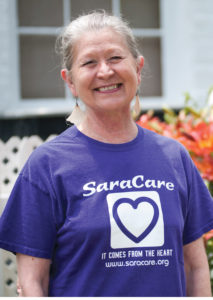
All my friends were liberal arts majors, mostly English majors; my family, my two brothers were liberal arts majors. And we didn’t have any training for one particular thing, but we got research skills, critical thinking skills, and then we applied it! So, unless you want to train for a highly technical, specific job, which may or may not still be around by the time you’ve finished your degree, I don’t think there’s anything better. I highly recommend a liberal arts education; it’s held me in good stead.
The core curriculum gives all students a sort of general basis of knowledge, and then you can decide from there where you want to specialize, what you want to major in, but I think that everybody needs that core curriculum. Not only does it give everyone the same base, that’s the value of a liberal arts education, but it also gives students a chance to test the waters in various disciplines to see if one of them sparks their interest.
I wish students were more committed to actually learning instead of “oh, this is just something we have to get through so we can get on with our life and live it.” Well, I want to ask them, “how are you going to get on with your life and live it without some base to build on?” I would hope that Berea College students bring to their education a little something more than the usual liberal arts student, because that’s what makes Berea special, at least in my day. Because none of us came from wealth, none of us had a silver spoon in our mouth, we knew that education was one of our best chances to make a difference in this world. I’m not talking about money. I’m talking about making a difference and, hopefully, many of us have.
If we were all on the march to technology, then it’s possible when we graduate from here, we just march right out of here. But if you are a liberal arts person, hopefully, you will want to stay in this area, because you value what makes the Appalachian region unique and still have the education and foresight to make it better. Not to change it completely, because that would destroy it, and it’s very special, but to add to it in a very positive manner. It’s too bad that people come from the Appalachian region, go to school in Berea, get an education, and then flee the region and go someplace else, probably to make more money. Well, I’ll tell you what, I came from Afghanistan to go to school here, and I stayed in this region to spend my life in a worthwhile way in a place that I really value. I hope more graduates will stay in the future.
Hussene Youssouf, ‘05
Senior Analyst at Georgia Pacific
President Young Alumni Advisory Council
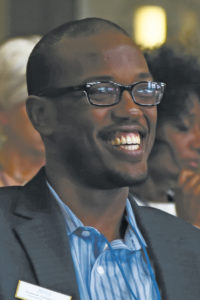
A liberal arts education provides a unique curriculum that focuses on general studies that enrich a student’s culture as well as a major that builds the foundational requirements that will best serve their career aspirations. Small classroom sizes allow students to develop close relationships with peers and faculty, which creates an environment where they can internalize and reciprocate their knowledge in their future roles. The atmosphere and culture of most liberal arts colleges create a society on campus where students learn how to deal with one another and develop certain interpersonal skills, which is very key for proper etiquette and understanding how to interact with other individuals.
Berea’s education has stayed true to classical education through its general studies approach, as it pays respect to Appalachia and understanding other cultures. Berea has a knack for allowing a student to develop their own point of view as they go from student to alumni.
Berea pays homage to its roots through its educational methods which help ensure that the Appalachian culture survives. It’s something that has been embedded in the Great Commitments. Liberal arts graduates, especially from Berea, have understood what it means to ensure that a culture like Appalachia stays connected through education and stories. A key thing, essential to the future of the Appalachian region, is to spread the message of what makes the region special. Having those stories told is a kind of marketing of some of the cool things in the region.
James Atkinson
Director of Career Development
Center for Transformative Learning
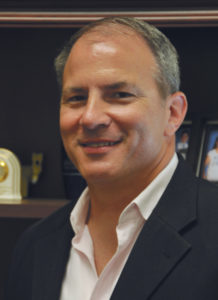
A liberal arts education can be a good investment because, unlike some of the more specified programs, liberal arts gives you a breadth of knowledge through a broad course of study instead of just having you siloed into one capacity. The liberal arts gives you broad exposure to a diversity of ideas, diversity of learning techniques. It actually makes a student more adaptive to the workplace and to societal changes. We find that liberal arts students tend to be lifelong learners, which allows them to adapt to changes, and change is always imminent.
Liberal arts students are more nimble at acquiring skills on the job, skills that you need to bring to the employer. Employers are surveyed by the National Association of Colleges and Employers every year regarding these skills. Year after year, it turns out the same skills are in demand, like the ability for verbal and written communication (both inside and outside the organization), problem solving, and technical skills. The liberal arts provides opportunity for teaching these skills and creates a more competitive candidate.
Adanma Barton
Assistant Professor of Theater Professor, Berea College
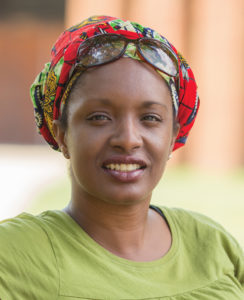
The liberal arts is definitely a good investment because the skills and knowledge that a student acquires through a liberal arts education serves every aspect of your life. I did not have a liberal arts background. I have a bachelor’s of fine art from Virginia Commonwealth University, so I can tell you everything you need to know about theater and acting. But coming from that environment and teaching in a broader, liberal arts-based environment, I recognize that students here get to touch upon more aspects of education and that can only help, particularly when you are speaking of global competiveness. I still think we can compete; it’s just about making sure that each student knows what I teach in all of my classes: “you’re responsible for you.” I can give you the tools, but I’m not going to build the house for you! I can even help you figure out your blueprints, right? But in the end it’s up to the student to build the house.
I think that Berea students share the foundational knowledge that’s also obtained through other liberal arts colleges, but we’re special because Berea students additionally obtain the important lesson of time management. In college is when you learn, “Okay, this is a good time for me to wake up and be present in my class,” and also how to balance taking classes with labor. Because we are one of six labor institutions in the country, Berea students have that over other liberal arts colleges. Being able to not only schedule out everything that you need to do and reach all of your goals, but manage and balance your time, well, that’s the most important gift that anybody could give you. And I really think that that’s a gift that’s unique to Berea.
I’m totally proud now to call Appalachia home. I’ve been here six years. My husband’s from Appalachia, so it’s been his home all his life. I was not born in Appalachia, so I’m Appalachian by proxy, I guess, because I married into it. And I think it’s incredible, and admirable, the way that students want to take their degrees and go back home and make a difference. If we do not continue to have that, if people continue leaving and not coming back, and not bringing things back home, then Appalachia’s going to be in a really hard way in the next couple years, in the next decade or so. I have immense pride in the students who take what they learn here, and go home and try to create something there.
We have a lot of students who apply to Berea who don’t get in. So for every student who’s actually here, there’s four or five people sitting at home. And those who are here need to take advantage of every opportunity that you have! And I don’t think there’s anything wrong with being smart, and I don’t think you’re “above your raising” if you take what you’ve learned and bring it back home to help people. Critical problem solving, critical thinking, we need more of it. It would be cool to find a way to encourage other people to go back home. If someone wants to go to graduate school, of course I’m going to help them go to graduate school, but in the end, coming back to Appalachia and helping out is important.

